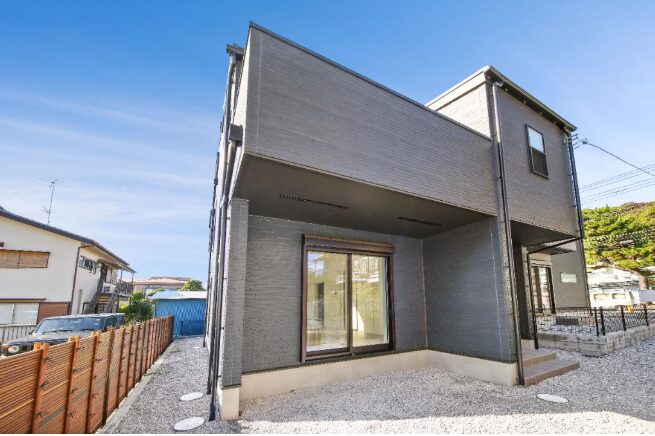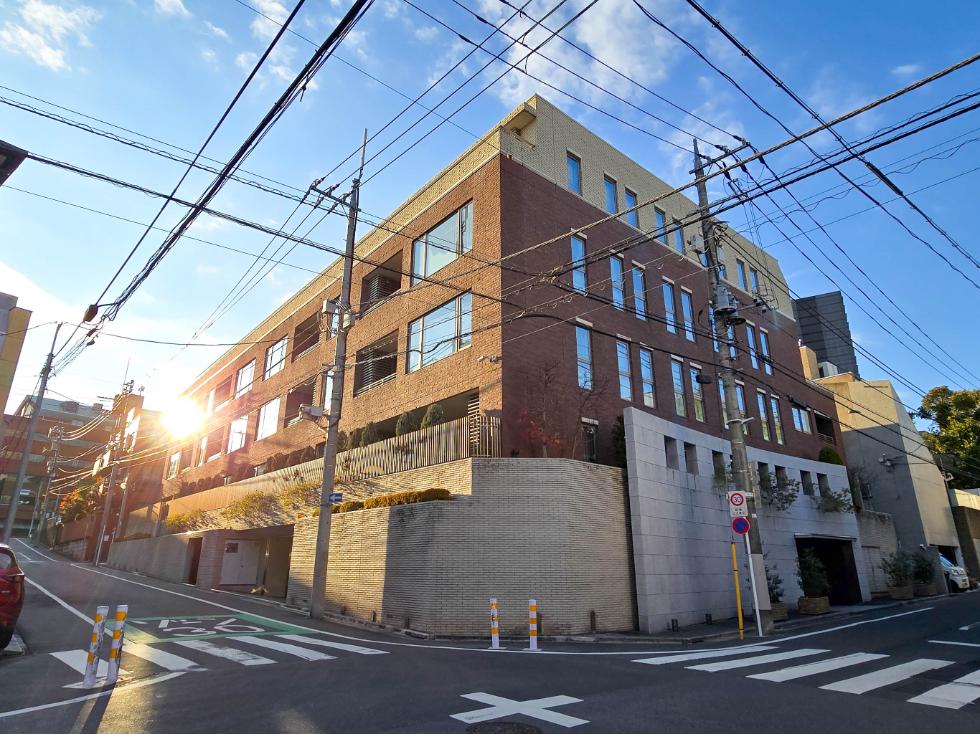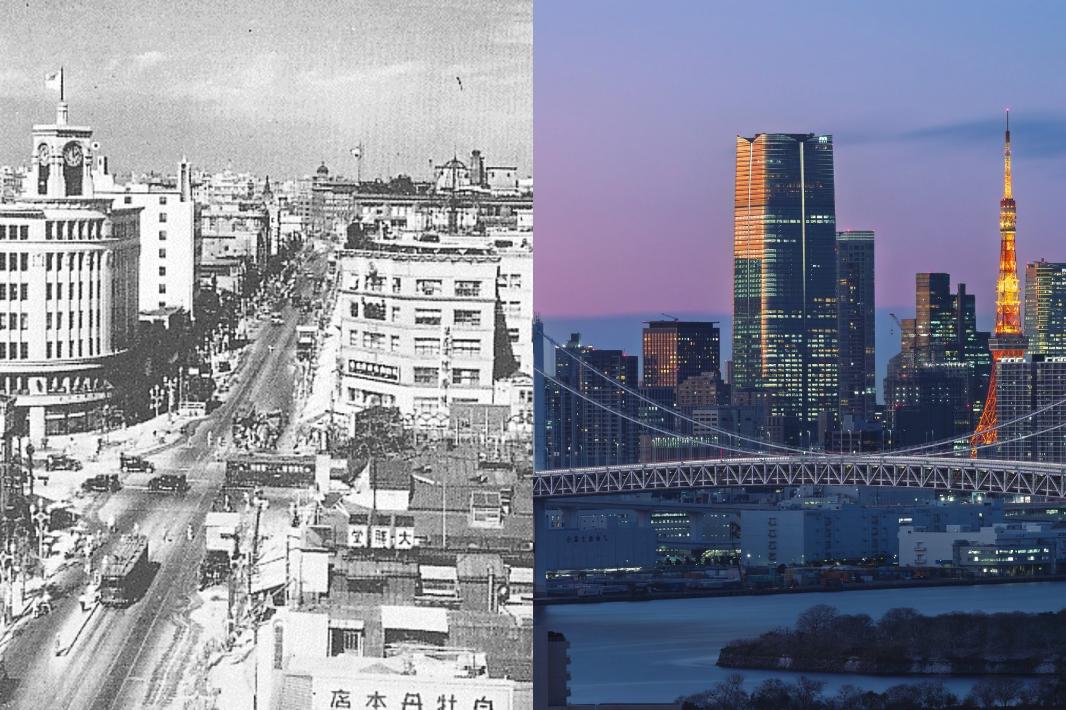If you’ve ever strolled through Tokyo, you may have been struck by something strange: the streets are remarkably clean, and public trash cans are almost nowhere to be found. For visitors, this feels like a paradox. How does a city of 14 million manage to stay spotless without them? The answer leads to a story that begins more than half a century ago, with the Tokyo Olympics
1964: The Olympics That Changed Tokyo’s Streets
When Tokyo won the bid to host the 1964 Olympic Games, the city was at a crossroads. Just two decades earlier, much of it had been reduced to rubble in the aftermath of World War II. By the early 1960s, Tokyo was rebuilding at breakneck speed, but the streets still told a different story. Tokyo wasn’t the clean and polished city it is today. Streets were smelly, often cluttered with garbage, some abandoned furniture, and scrap metal.
For a nation eager to showcase its resilience and re-entry onto the world stage, this image simply would not do. The government launched the “Capital Beautification” campaign, a massive cleanup effort that went far beyond removing litter. This government led campaign was both about sanitation and redefining Japan’s identity. Clean streets became a symbol of discipline, order, and modernity. A visual proof that Japan was no longer a war-torn country, but a forward-looking, global power. Keeping the environment clean became an Olympic discipline itself.
Trash bins were placed strategically across the city, and for the first time, citizens were encouraged to separate waste. More than a practical measure, it was a cultural reset. Carrying your trash home became a quiet act of civic pride, a reflection of personal responsibility in service of the greater good. Over time, this practice would embed itself deeply into the Japanese psyche, giving rise to the unique waste culture we see today. One where recycling is an everyday ritual and streets remain astonishingly clean, even in the world’s largest city by population.
1995: Tokyo Subway Sarin Attack
Three decades after Tokyo dazzled the world with its cleanliness during the 1964 Olympics, the city was confronted with a darker test. On the morning of March 20, 1995, as commuters crowded onto subway trains bound for the heart of the city, members of the doomsday cult Aum Shinrikyo carried out one of the deadliest domestic terror attacks in Japan’s history. They placed punctured plastic bags filled with liquiqd sarin, a highly toxic nerve agent, on crowded trains, releasing invisible fumes that rapidly spread through packed cars and station corridors.
Panic and chaos rippled through the subway system. Passengers collapsed, blinded and choking, while others staggered desperately toward the exits. By the time the attack was over, 13 people had been killed and more than 6,000 injured. It was a moment that shattered Japan’s sense of security.. For a society that prided itself on safety, order, and trust, the sarin gas attack was a profound rupture.
In the aftermath, Tokyo began rethinking its public infrastructure through the lens of security. Ordinary conveniences suddenly looked like risks. Trash bins, once symbols of the city’s post-Olympic cleanliness, were now viewed as potential hiding places for weapons or hazardous substances. Many were quietly removed from train stations and busy public squares. Coin lockers, long a fixture of Japanese commuting culture, were sealed off or temporarily shut down during sensitive periods. Even the simple flow of pedestrian traffic was reconsidered with new vigilance.
What had started as a nation of cleanliness now became a nation of caution. The absence of public bins became a necessity born of tragedy. People carried their waste home not only out of habit, but because the city had made it part of its security culture. What outsiders might see as an inconvenience, became, for Tokyo residents, a part of something that could be called collective cultural responsibility.
Japan’s Risk Management Playbook
But it doesn’t stop there. Trash cans, coin lockers, even seating arrangements become part of a larger risk-management playbook.
A perfect example came in 2019, when U.S. President Donald Trump visited as the first state guest of the Reiwa era. In response, authorities mounted one of the largest security operations in Tokyo’s history. Around 25,000 police officers were deployed, and strategically, public trash bins and coin lockers vanished from major stations. Tokyo Metro began removing bins at key locations like Kasumigaseki, Shinjuku, and Ikebukuro, keeping them off the maps until the president departed.
These changes weren’t meant to cause inconvenience, they were a deliberate, subtle layering of protection. Commuters and visitors noticed, but in Japan, such adjustments don’t spark outrage.They are seen as a trade-off. A small shift in comfort traded for peace of mind. This response reflects a broader cultural rhythm: security measures integrated into daily life, often invisible, but always present. From 1964’s cleanliness drive to 1995’s shock to 2019’s high-security choreography, Japan’s adaptation of public space remains a testament to resilience, respect, and again, collective cultural responsibility.
More Than Security: A Cultural Perspective
On a lighter note, one travel guide writer shared a reflection that resonates with many Japanese:
“When I was a kid, I was always told to wear socks at someone’s house. Why? So we don’t dirty their floor. Even if we got snacks, we were expected to take the wrapper home. Leaving your trash in someone else’s space felt rude. In Japan, trash is still considered ‘yours’, even after it becomes useless. Leaving it in a public space feels like invading someone else’s home. Unconsciously, we grow up thinking: ‘This is mine. I’ll deal with it at home.’”
This cultural habit, treating trash as personal responsibility, helps explain why Japan functions so smoothly despite the scarcity of public bins. Tourists may find it inconvenient, but for locals, carrying garbage is a natural extension of respect, discipline, and communal responsibility.
At Mr.LAND, we believe these cultural insights matter. Whether you’re an investor, developer, or traveler curious about Japan’s urban rhythms, understanding the way history, security, and tradition shape daily life is essential to understanding Japan as a whole. We help you navigate its landscapes, connecting you not only with property, but with the deeper stories that make Japan what it is today.








